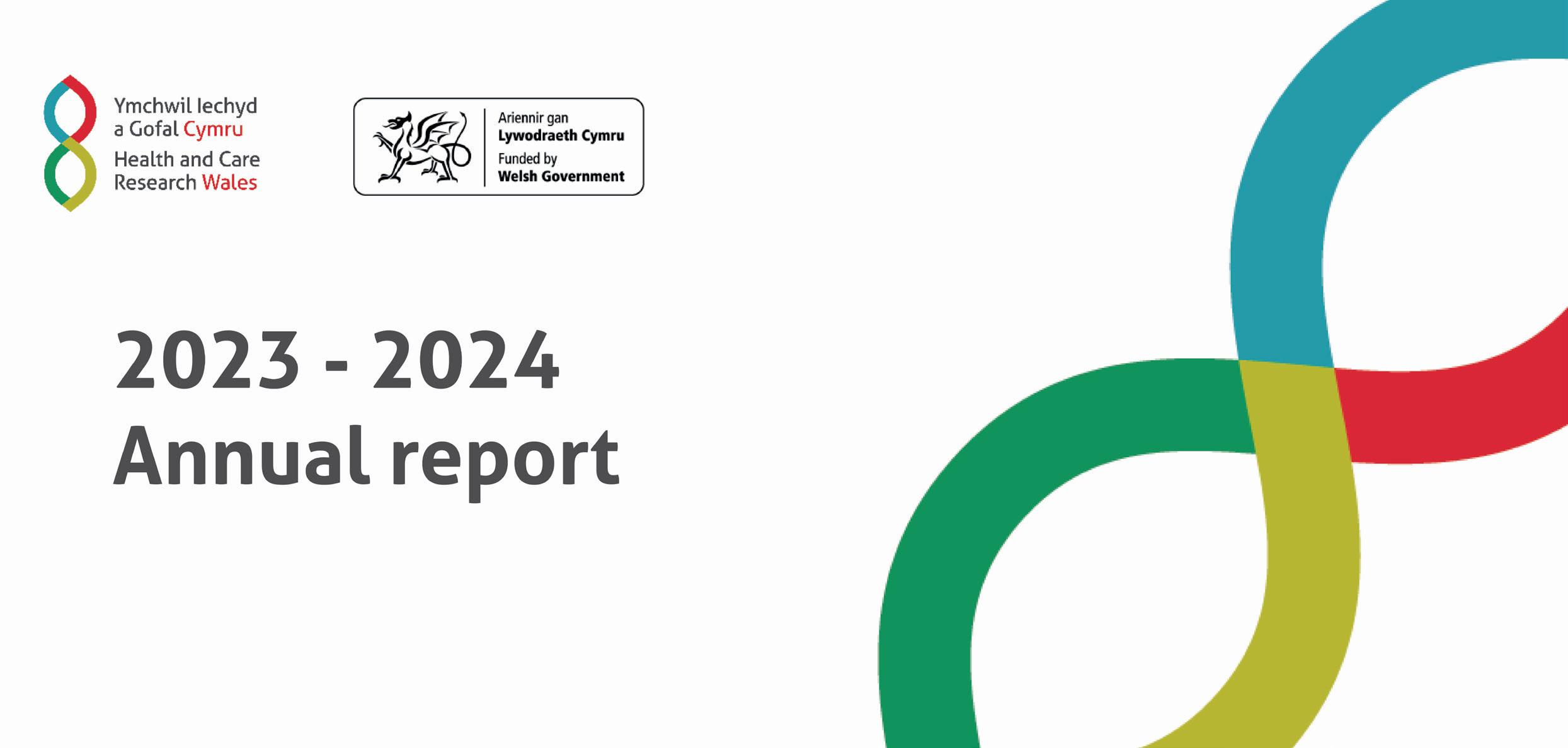
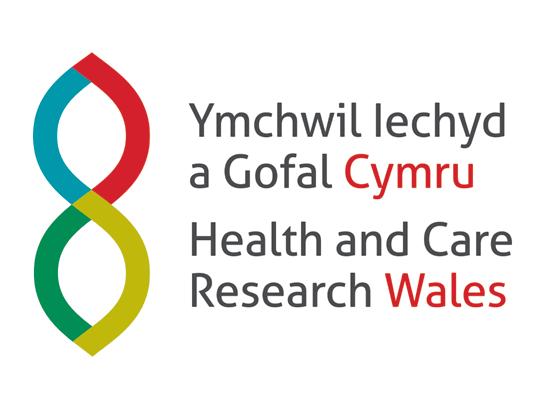






careresearchwales.org
CARE@cardiff.ac.uk
linkedin.com/company/care-centre-for-adult-social-care-research
@CAREResearch_W









careresearchwales.org
CARE@cardiff.ac.uk
linkedin.com/company/care-centre-for-adult-social-care-research
@CAREResearch_W

Welcome to CARE!
As the recently appointed Director of the Centre for Adult Social Care Research, I am delighted to present our first Stakeholder Report and our research centre.
Our mission in CARE is to make a significant contribution to the knowledge base of adult social care and generate new evidence that informs the delivery of adult social care support through multidisciplinary research activity and collaboration. At the core of our mission is delivering research activity that can improve social care delivery and produce better outcomes for people with care and support needs in Wales and beyond.
CARE is a new collaboration between the Cardiff University School of Social Sciences, Cardiff Business School and the Centre for Trials Research. We are resourced by infrastructure funding from Health and Care Research Wales. The development of CARE has been strongly supported by the Children’s Social Care Research and Development Centre (CASCADE).
This has been a foundational year for us as we have pulled together all the key ingredients needed for a recipe for success.
One key ingredient is having the right people on board. I’m delighted to introduce the recently recruited staff who now make up our core team.
Our research team members bring a wide
range of disciplinary expertise and their research backgrounds span a diverse range of topics including mental health and social care, substance misuse support and interventions, older age, care settings and social inclusion, creative methods and realist approaches to research, sexuality and ageing, and men and masculinities. Our professional support members bring skills and expertise in finance, administration, communications and public involvement. Notably, many of our team members have prior and current experience in supporting others with care and support needs.
Another key ingredient to success is collaboration, which is central to our work in CARE. Over the last 12 months we have been getting out and meeting key stakeholders including people managing and leading charities, people working in government policy on social care priorities, and local authority representatives involved in the delivery of social care assessments and support. These conversations have been critical for determining the priority areas for our early research agenda.
To this end, we have established a Strategic Advisory Group. The Group is chaired by Andrew Pithouse, Emeritus Professor at Cardiff University. Members include key people from Welsh Government, directors of social care services in local authorities and academics who have long led social care research studies in other institutions. It also includes people with lived experience of receiving social care support.
A group that is fundamentally important to what we do and how we do it will be people with lived experience and carers. We have been establishing new partnerships with social care organisations and advocacy services.
I am delighted that we now have a Public Involvement Board of seven highly dedicated individuals with lived experience of receiving care and support who bring valuable insight. We look forward to working with this group and co-designing research proposals, activities and outputs. Supporting public involvement will be at the heart of CARE’s core strategy and activity.
A third vital ingredient is having the resources to do high-quality research. A key focus over the last year has been preparing and submitting funding applications to crucial funding streams led by institutions such as Health and Care Research Wales and the National Institute for Health and Care Research.
We are grateful for the external support of Jill Manthorpe CBE, Professor Emerita of Social Work at King’s College London, who has been a critical friend to us during this early phase of bid writing.
This brings me to the final key ingredient –multidisciplinary expertise. This is vital for bringing together different but complementary perspectives for addressing pressing social care problems through collaborative research. Our research is clustered around key thematic areas: dementia and other neurological conditions; learning disabilities, neurodivergence and learning difficulties; housing and long-term care settings for older people; transitions to adulthood and adult social care services; and workforce management and care provision. As we head into Year 2 we are establishing new thematic streams in technology, care and wellbeing; and, mental health services and social care support.
While these are still early days, we have all the vital ingredients to grow and thrive, and generate new adult social care research that speaks to priority areas for Wales and beyond.
Professor Paul Willis Professor of Adult Social Care
Cardiff University
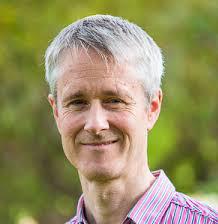
Professor Jonathan Scourfield Acting Director
CARE
AprilNovember 2023
It is great to be writing for the CARE annual report now the centre is fully staffed. I put together the expression of interest to Health and Care Research Wales when they were seeking to establish an adult social care research centre, based on two main considerations.
Firstly, there was the existing expertise in Cardiff University, which was spread across different parts of the university and had not been brought together into a critical mass before. I thought a centre, with improved sector links and public involvement could foster greater collaboration and support more ambitious research proposals.
Secondly, I thought we could build on the experience of the Children’s Social Care Research and Development Centre (CASCADE). In the ten years since it was founded, CASCADE has grown to be the largest centre of its kind in the UK, with an increasingly international reach for its work. Central to the centre has been strong involvement of people with lived experience of social care as service users.
A hallmark of CASCADE has been methodological pluralism, including approaches rarely used in social care such as analysis of linked administrative data and randomised controlled trials. With the range of Cardiff schools involved in CARE, and methodological input from the Centre for Trials Research, we can aim to be similarly diverse in the terms of the range of evidence we produce.
It’s great to see the first CARE projects taking off, ambitious research bids being submitted and talented staff being recruited. I can see it going from strength to strength over the next few years.
CARE brings together multi-disciplinary expertise from across the University, and fosters collaboration with organisations and groups across the UK, to develop cuttingedge research on adult social care, underpinned by substantial UK-level research funding.
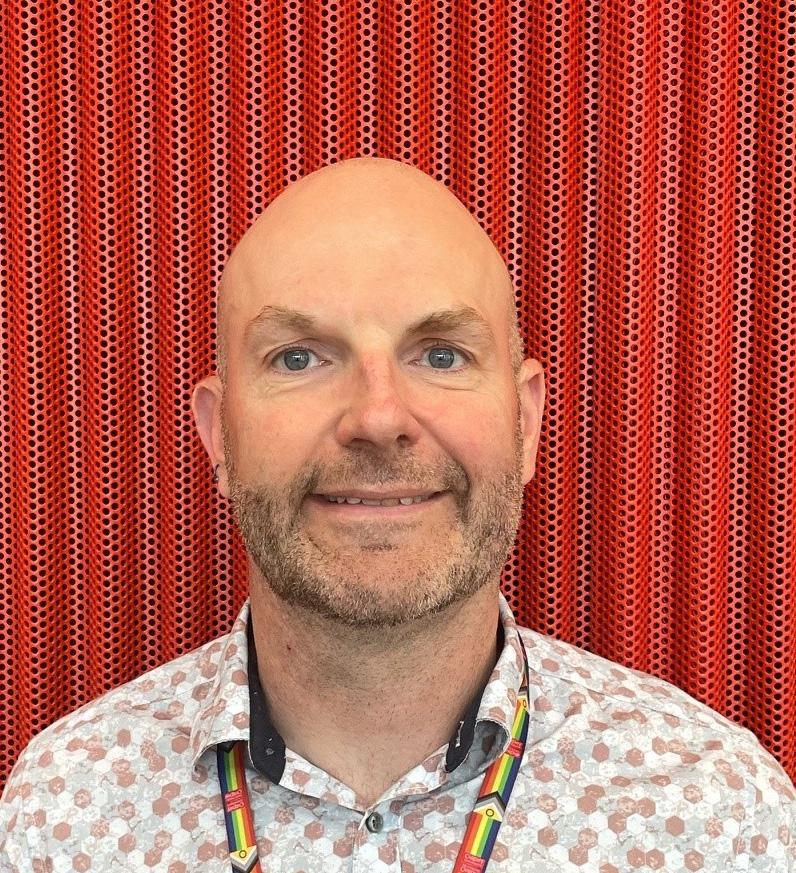
Paul Willis, Director
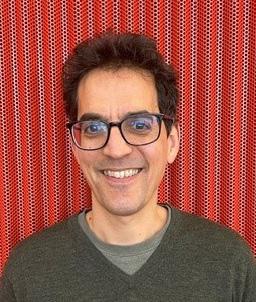
Jeremy Dixon, Deputy Director
Paul is a Professor of Adult Social Care, a registered social worker, and the inaugural Director of CARE. His research background is in social gerontology and his research focuses on issues of social inclusion and care in later life, particularly for older people belonging to minoritised groups with care and support needs.
Areas of research interest and expertise: housing, ageing and social inclusion; unpaid carers and social isolation; loneliness, ageing and later life; older men’s social connections; sexuality, gender identity and ageing; LGBTQ+ ageing; social work with older people; inclusive social care practices and services.
Jeremy is a Reader and Deputy Director of the Centre for Adult Social Care. His research interests include how professionals understand and manage risk and uncertainty; adult safeguarding, how professionals interpret mental health law, the views of people living with mental health problems and unpaid carers on mental health law and mental health services, dementia care; and end of life care.
Jeremy qualified as a social worker and has also worked as an Approved Mental Health Professional and as a senior practitioner in a forensic mental health unit.

Sofia Vougioukalou is a researcher with a background in medical anthropolgy focusing on diverse groups of older adults living with chronic conditions in the community and care homes.

Melissa Meindl is a mixed-methods researcher with a background in social care, psychology, neuroscience, and the use of realist methodology.
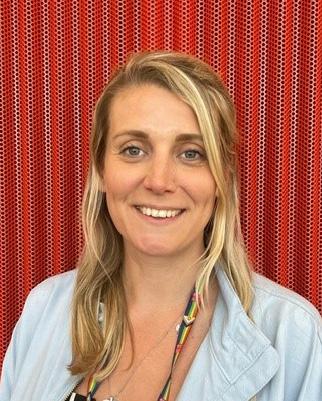
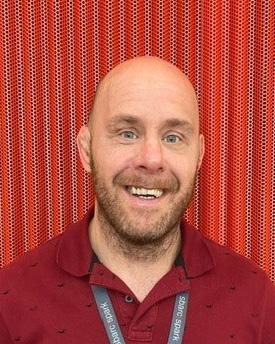
Sophie Wood is a mixedmethods researcher with expertise in administrative data linkage research, Realist approaches, and survey design and analysis.

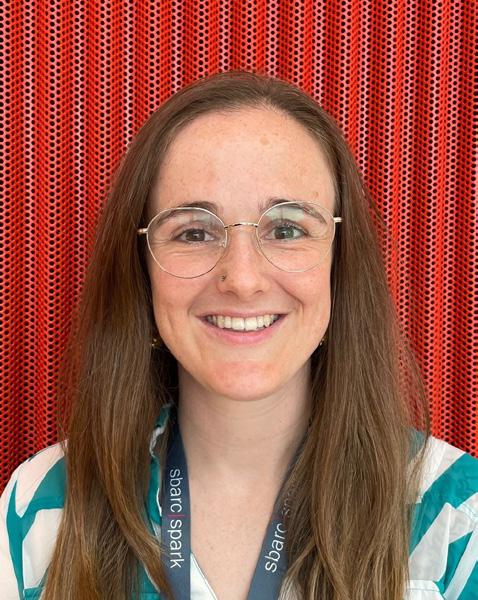
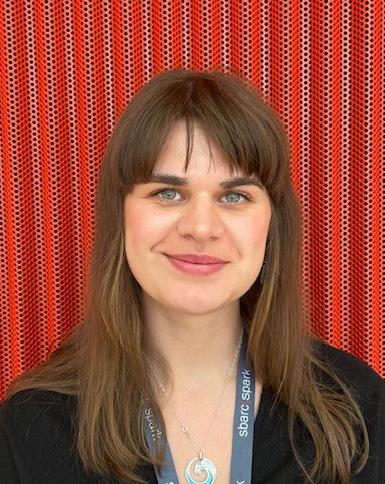
Richard Gater is a researcher with knowledge of masculinities related research and qualitative research methods.

As the CARE Centre Manager, Alexandra Williams provides strategic oversight, manages operational delivery, and leads the CARE Professional Services team.
Alice Butler is the Public and Professional Involvement Officer, leading the Public Involvement Advisory Board and Practitioners Forum and supporting the involvement of people with lived experience.
Amy Chapple is the CARE Research Centre Administrator and supports the day-to-day running of the centre, as well as its portfolio of research projects and events.
Clara Lewis is the CARE Communications Officer responsible for communication strategy, content creation and managing centre communications across all channels.
Executive Team
• Paul Willis – School of Social Sciences
• Jeremy Dixon – School of Social Sciences
• Sarah Jenkins – Business School
• Mike Robling – School of Medicine
• Jonathan Scourfield – School of Social Sciences
• Alexandra Williams – CARE Centre Manager
Strategic Board
• Professor Andy Pithouse (CHAIR) –Cardiff University
• Jason Bennett – All Wales Heads of Adults Services, Deputy Director Improvement, Social Services and Integration
• Kate Cubbage – Carers Trust Wales
• Jonathan Griffiths – Welsh Government Transformation Lead Children and Adult Services
• Sarah Jenkins, Cardiff University
• Professor Jill Manthorpe – Academic Representative, Kings College
• Jonathan Scourfield, Cardiff University
• Taryn Stephens – Social Services and Integration Directorate at Llywodraeth Cymru, Welsh Government
• Lisa Trigg – Social Care Wales
• Alexandra Williams – CARE Centre Manager
• Paul Willis – CARE Director
• Richeldis Yhap – Cardiff University
CARE Community
• Professor Davina Allen – School of Healthcare Sciences
• Dr Roser Beneito-Montagut – School of Social Sciences
• Dr Stephen Beyer – School of Medicine
• Dr Dan Burrows – School of Social Sciences
• Dr Dorottya Cserzo – School of Social Sciences
• Dr Anna Galazka – Cardiff Business School
• Professor Ben Hannigan – School of Healthcare Sciences
8
• Dr Josie Henley – School of Social Sciences
• Professor Sally Holland – School of Social Sciences
• Dr Asma Khan – School of History, Archaeology and Religion
• Professor Martin Kitchener – Cardiff Business School
• Dr Julie Latchem-Hastings – School of Healthcare Sciences
• Professor James Lewis – School of Social Sciences
• Fiona Lugg-Widger – School of Medicine
• Professor Peter Mackie – School of Geography and Planning
• Dr Rachel McNamara – School of Medicine
• Andrea Meek – School of Medicine
• Yvonne Moriarty – School of Medicine
• Dr Rebecca Oatley – School of Social Sciences
• Alexis Pala – Cardiff Business School
• Dr Georgie Powell – School of Psychology
• Dr Catherine Purcell – School of Healthcare Sciences
• Professor Alyson Rees – School of Social Sciences
• Dr Victoria Shepherd – School of Medicine
• Dr Alison Tarrant – Cardiff School of Law and Politics
• Dr Gareth M. Thomas – School of Social Sciences
• Dr Elisa Vigna – School of Medicine
Public Involvement Board
Members and their affiliated organisations:
• Damian Bridgeman – Disability Wales
• Chloe Cannon – All Wales People First
• and Wellbeing Forum
• Kirti Kotecha – Women Connect First
• Anne Rees – Independent Carer
• Andy Woodhead – Lleisiau Dementia
• Richeldis Yhap – Wales Mental Health and Wellbeing Forum
• Member TBC – The Carers Trust
2023/2024

Cardiff University led project
Dr Victoria Shepherd

When a person is not able to communicate their wishes about taking part in a research study, someone else (usually a family member) is involved in deciding whether they take part or not. This decision should be based on what the person would have decided for themselves, however this is often unknown.
Advance research planning (ARP) is a process for people to express their preferences about research participation should they be unable to communicate their wishes, and to identify who they wish to be involved. This may help to ensure decisions are based on their wishes and could reduce the impact on family members, some of whom experience a decisional burden when it comes to research participation. However, ARP is not yet available in the UK.
This Churchill Fellowship was an opportunity to visit countries that have looked at introducing ARP to learn about their experiences. It built on the UK-based CONSULT-ADVANCE study which explored stakeholders’ views about the acceptability and feasibility of implementing ARP. A group with lived experience of caring for people with capacity-affecting conditions helped design the study and the Churchill Fellowship project. As a CARE supported project, it benefitted from discussions with researchers with experience of the broader care and support needs that people with capacity-affecting conditions may have, and the study’s relevance to social care research.
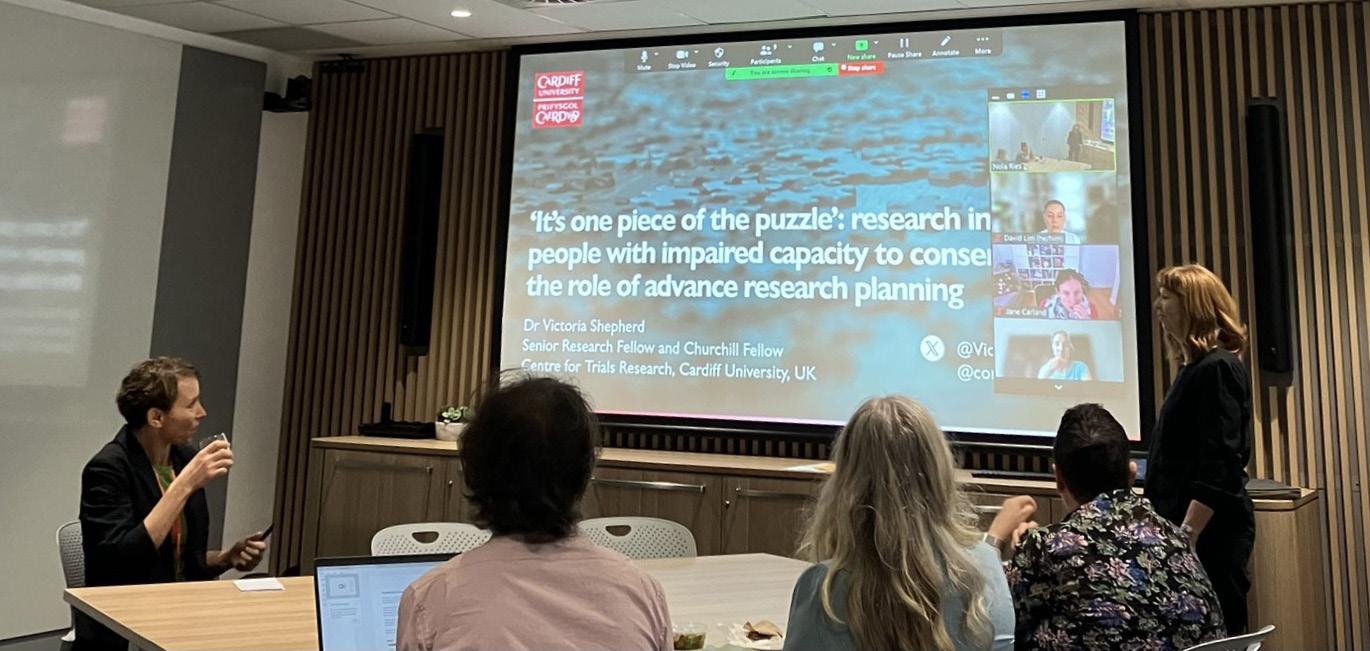
Victoria Shepherd speaking at a symposium at University of Technology Sydney.
Visits to Canada and Australia took place in early 2024, and included meetings with researchers, organisations involved in ARP, and members of the public. It was also an opportunity to explore how different cultural factors, and legal and policy environments affected the implementation of ARP.
The key finding is that there are clear gaps between theory and practice. One size doesn’t fit all – historical, cultural, and legal contexts vary between countries and so arrangements for advance planning for research will also need to do so. As reflected in the CONSULTADVANCE study, there are several unintended consequences that need to be considered. Including the need to support groups who are already under-served by research to be able to equitably engage with ARP.
The findings will help inform the development of strategies and tools to introduce ARP in the UK, with a focus on accessibility and inclusive design.
Dr Georgie Powell
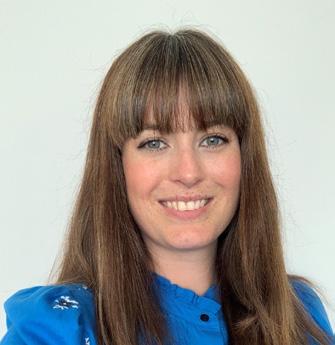
The aim of this project is to understand more about neurodivergent young people’s experience of online harms and to co-design new technologies to help them understand how their data is shared online. The project is funded by Google, who are also collaborating on the project, and we have appointed a PhD student who started in October 2023.
Very little research has explored the unique experiences of neurodivergent people online, despite the fact that they have unique cognitive profiles that could lead to specific strengths or difficulties. For example, someone with dyslexia might find it challenging to remember passwords or process large quantities of text online, such as terms and conditions documents. Whereas, autistic young people might show more aptitude for some aspects of technology than their peers because technology is one of the more common special interests for autistic young people. We are also interested in potential intersectional factors, and protective or resilience factors, that could help keep people safe from online harms.
The first stage of the project is based around four workshops, which aim to both educate the young people about internet safety, while also collecting data about their experiences online. The workshops take the format of introduction to online harms; sharing personal information, security and privacy; scams and phishing. The workshops are interactive and contain different activities that encourage discussion and real


world examples of scams and online harms.
We hope that the workshops we are creating could be used in the future by secondary schools, colleges, universities, and charities to help educate young people on internet safety. They could also be adapted for people with a learning disability.
Two autistic young people have been helping to inform the research during its development, and we hope to include more public researcher partners as the project progresses.
The project has already benefited from being associated with CARE through networking opportunities – via a CARE associated event I met someone from the NSPCC who was interested in the work, and I also made contact with people from Social Care Wales.
Cardiff University led project
Dr Sofia Vougioukalou and Dr Roser BeneitoMontagut
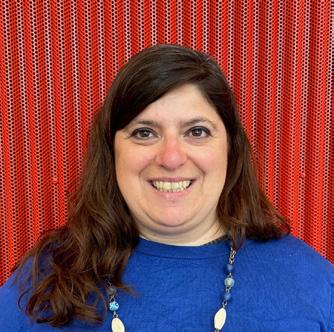
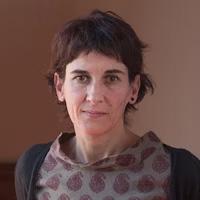
Technology is reshaping the way adult social care services are delivered.
Tech benefits for a “Dementia Friendly Wales” will only be realised if innovation reaches rural and urban environments and underrepresented people living with dementia, such as migrants, neurodivergent people, LGBT+ groups and people with disabilities.
Dementia often makes people withdraw from society and activities that bring them joy, meaning, and purpose. Using assistive technologies such as AI, wearables, smart devices, sensors, and robots in dementia care can help people to lead more fulfilling and independent lives.
We will collaborate with academics, people affected by dementia and third sector professionals to look into the issues that affect diverse people with dementia, and their formal and informal carers when using assistive technologies. This will lead to funding applications to evaluate and improve implementation of assistive tech for diverse service user groups through co-production.
This project came together in a CARE dementia group meeting where we quickly identified expertise in the area. CARE allowed us to respond promptly to a funding call and put together a multi-disciplinary team.
Eight people affected by dementia have reviewed this proposal and identified it as of importance to improving the experience of living with and/or caring for someone with
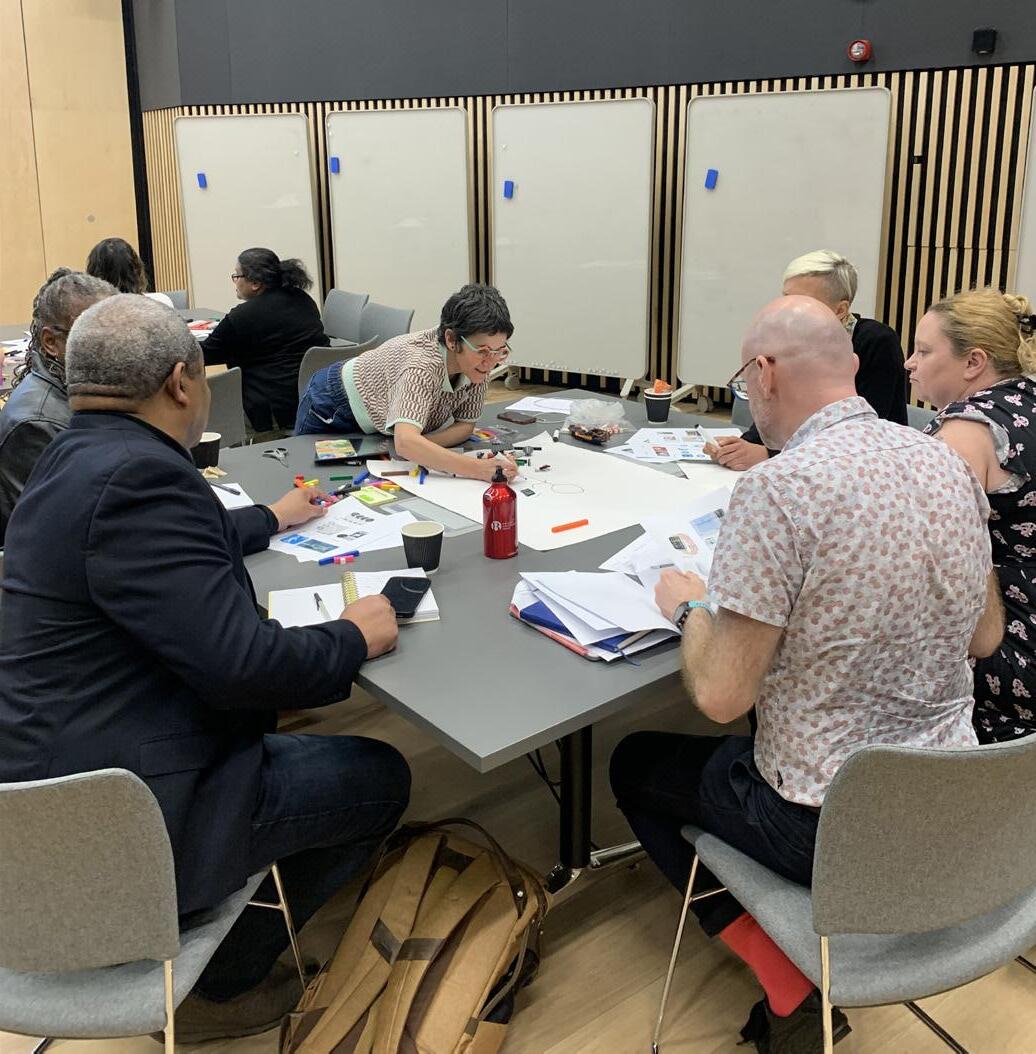
Innovative Assistive Tech for Dementia Workshop at sbarc|spark, Cardiff University.
dementia. This includes a member of the LBGT+ community and a man from the Gypsy/Traveller community living with dementia, carers who are visually impaired, Deaf/BSL users, people who have English as their second language and members of the Afrocaribbean community.
We will engage public involvement contributors from Alzheimer’s Society Cymru, Lleisau Dementia and Innovations in Dementia.
We held our first in-person meeting which included people living with dementia, carers, charities and public sector regulators. We discussed benefits and barriers of using technologies, imagined new technologies for people with a progressive cognitive impairment, and mapped the funding landscape.
This is the first project on this topic in Wales. We combine expertise in socio-gerontology, social work, and user-centre design to address some key issues faced by under-represented groups affected by dementia.
Dr Elisa Vigna and Andrea Meek
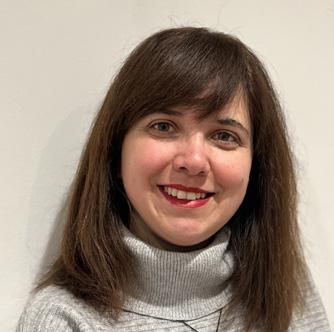

Influencing and Informing Engage to Change (E2C) is a project delivered in partnership between Learning Disability Wales and the National Centre for Mental Health at Cardiff University. The partnership is taking forward the policy, research, and legacy work of the E2C project. The research team is working to advise and influence through co-production activities and to produce accessible and easy-read research outputs.
Using video formats, the team collaborated with self-advocates to co-produce scripts, and assisted people with lived experience of learning disabilities and autism, to deliver research outputs based on the E2C project outcomes.
The E2C project supported young people with a supported employment model, and a supported internship model between 2016-2023. The project was funded by the National Lottery Community Fund in partnership with the Welsh Government. The aim was to support young people aged 16 to 25 with a learning disability, autism, or a specific learning difficulty, who were not in education, training, or employment (NEET), to increase their employment skills and gain employment opportunities and ultimately paid jobs.
The project has worked with a total of 1,294 young people (16-25) with learning disabilities and/or autism, using needs-led
job coaching support, and through different pathways to employment, such as paid and unpaid placement and supported internship.
Overall, the project achieved an employment rate of 41% of those entering one of the employment pathways, compared with the UK figure of 4.8%.
The Influencing and Informing E2C team continue to work with Welsh Government, Members of the Senedd, DWP, local authorities, health boards, colleges, and other organisations with the aim of ensuring that supported employment is funded and available across Wales. The team is continuing their work by meeting with parents’ groups and working with young people from E2C.
The team was recently invited to the Senedd by Dr Hefin David MS, to discuss the way forward. A conversation is ongoing to make sure that job coaching support is included in employment programmes around Wales, to support the next generation of young people with learning disabilities into employment.
The partnership with CARE is key for the E2C legacy work. The Engage to Change team has recently organized a seminar on “Ageing for people with learning disabilities and autism” hosted by NCMH and CARE.
The international event was an opportunity to discuss what is needed in Wales in term of social care needs. The Influencing and Informing E2C team is currently collaborating with other CARE researchers interested in neurodiversity and learning disability to develop new grant proposals informed by the lessons learnt form the E2C.
Cardiff University led project
Dr Josie Henley
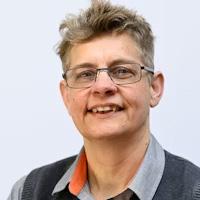
In this project, we aim to understand and improve autistic experiences of welfare (social security/social care), using participatory artsbased methods. We secured Wales Innovation Network funding to conduct Involvement Workshops, to foster community engagement, and a Bid Partners Workshop, to finalise contributions and roles for the next stage bids.
Being a CARE project helped with support for the funding and will help with dissemination to stakeholders.
We, Josie Henley from Cardiff University and Edith England from Cardiff Metropolitan University, have an existing collaborative relationship having worked together
on previous projects. For this grant, we collaborated with Emma Sheppard in Aberystwyth University as part of the bid.
Our research activities will include two involvement groups with Autistic adults, one in Aberystwyth and one in Cardiff in the Summer in 2024.
The project uses participatory arts-based methods which we are developing as a way to involve people and groups who might otherwise not feel able to contribute to research.
We have recruited a Research Assistant to help organise the involvement groups and bid partner workshop and we are currently recruiting for two involvement groups.
Cardiff University supported project
Chief Investigator: Honorary Professor Alexander Toogood
Joint Lead Applicant: Dr Vasiliki Totsika
Co-investigators: Dr Manuel Gomes, Dr Rachel McNamara, Dr Rebecca Playle, Ms Fiona Gordon
Project dates: January-December 2024
Contracting Organisation: Special Needs Care
Limited
Participating in activities in and around the home is a normal part of everyday life. Being active and socialising improves our mental health, fitness, and wellbeing - and is an important goal in life. People with learning disabilities who live in supported living services rely on staff to create opportunities for them to participate in ordinary everyday activities. Opportunities are often missed, however, when staff do activities for the people they support instead of with them, and when staff support is inconsistent and servicecentred.
Active Support is a way of working that helps staff deliver consistent person-centred support. Staff plan activities with the people they support, provide the right level of assistance, and keep track of what each person does. People in supported living services do more activities for more of the time when staff use Active Support. The approach is not common in supported living services, however, because staff training is perceived as resource intensive and difficult to maintain, and provider organisations worry that paperbased systems are laborious, expensive, and inefficient.
The PBAS app addresses these concerns. Staff use the app to plan, support, and monitor everyday activities with the people they support at home and when out and about. Staff use the app to keep track of what people do to see that opportunities remain balanced and are a good match with personal preferences. Other Active Support features included in the app foster independence and growth through skills teaching and maintenance and behavioural assessment.
To develop a protocol for a randomised control trial we need to improve our understanding of (a) how services plan and monitor activities, (b) provider organisations’ willingness to use apps and participate in a study, and (c) the best way to conduct an economic evaluation.
We propose to conduct an online survey with a representative sample of 30 service providers from England and Wales. We will ask providers how they currently plan and monitor activities at home and in the community, how likely they would be to use an app for this purpose, and if they would be willing to participate in research.
We will run three focus groups and five sets of interviews with service users and staff to obtain their views on the acceptability of research methods. We will also consult published literature and subject matter experts to identify health economic measures best suited for the learning disabilities population.
Food glorious food: A mixed methods evaluation of food-related practices in post diagnostic community-based group support for people affected by dementia
Principal Investigator: Dr Shirley Evans at the Association for Dementia Studies, University of Worcester
Research team: Dr Rebecca Oatley, Thomas Morton, Dr Ruby Swift (both at the Association for Dementia Studies, University of Worcester), Dr Sophie Knight (University of Worcester), Dr Karan Jutlla (University of Wolverhampton), Dr Geoff Wong (University of Oxford), and Nigel Hullah (expert by experience).
Project dates: April 2024-November 2024
This project aims to develop evidence with respect to the advantages and challenges of food provision and related practices within community-based groups for people living with dementia.
Food practices and experiences encompass far more benefit than simply nutrition. Food and related practices, such as preparing, sharing, clearing up, can be important to a sense of holistic wellbeing, as well as a vehicle for communication, cultural expression, and social interaction. Thus, food can be a highly valued aspect of community-based group support to people living with dementia and those that support them. Yet, there is little known about the broad benefits and potential risks that including food-related practices can have within community-based group support. This limited understanding means there may be missed opportunities to use food to promote people’s social citizenship, diverse cultural identities, agency, and personhood.
This mixed methods project will use ethnographic observations, conversations and interviews with group attendees, staff, and volunteers at six culturally diverse communitybased groups for people living with dementia and family carers. Methods are designed to be flexible to offer different people living with dementia a variety of opportunities to participate in ways suited to their strengths and preferences.
The project was developed following feedback from people living with dementia and family carers from a variety of community groups. Food was repeatedly raised as a valued aspect of provision. Yet for many groups, COVID-19 eradicated or negatively changed the way food was provided. This project was developed to understand the benefits and challenges that food provision in community groups might have for different people living with dementia.
Nigel Hullah (an expert by experience) and a working group of people living with dementia, family carers, and professionals with relevant expertise will provide advice, guidance and developing a dissemination plan throughout the project.
The project will benefit from sharing opportunities for discussion, collaboration and support as part of the CARE research community. It is funded by the NIHR Research for Patient Benefit (RfPB), Research for Social Care Programme (NIHR205163).
Professor Sally Holland
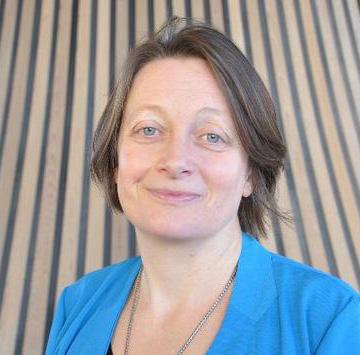
In 2023 - 2024, we have focused on developing our governance structure and main methods for public involvement.
We established a project group for public involvement. The group met monthly between July and March. Members were researchers with experience and enthusiasm for public involvement and people with lived experience of adult social care.
The group consulted with potential partner organisations and people with lived experience. This included discussions and workshops with people with a learning disability and members of a mental health and well-being forum who had experience of social care services.
We have agreed to have a Public Involvement Board, which includes eight people with a variety of experiences of using adult social care services, and individual project advisory boards for funded projects. The board will mainly provide strategic advice for CARE, while also advising us on our quality and methods of public involvement and larger research bids.
Six partner organisations have agreed to support members of the Board and to also involve other people who use their services in our other work, including bid development and project advisory boards. They are:
1. Wales Mental Health and Wellbeing Forum
2. All Wales People First
3. Disability Wales
4. Women Connect First
5. Carers Trust Wales
6. Wales Neurodivergence Team
Our first public involvement board meeting took place in April 2024. We are very excited to be working with our brilliant new Board members and expect them to have a big impact on CARE’s work.
As well as working on our governance structure for public involvement work, we have carried out a great deal of public involvement work to support research bids and ongoing projects. Here are a few examples:
As part of a funding application led by Dr Catherine Purcell to Health and Care Research Wales titled ‘A gap analysis of the social care needs of neurodivergent adults with and without learning disabilities in Wales (LOCATE Wales)’ we were very fortunate to secure support from Health and Care Research Wales to recruit five public research co-applicants.
Our public research co-applicants supported the development of both the stage 1 and stage 2 applications. Specifically, the support provided by Health and Care Research Wales enabled our public research co-applicants to review both stage applications and feedback on the content during meetings. This led to substantial changes to both stage applications to ensure suitability and relevance to the population, which would not have occurred without the input from our public coapplicants, who bring a wealth of expertise and experience.
Following the submission of the stage 2 application, Dr Purcell was interviewed by Health and Care Research Wales to discuss the involvement of the Involve Team. Furthermore, she is scheduled for another interview in June, this time accompanied by one of the public co-applicants. Their shared experiences will be featured on the Health and Care Research Wales website and marketing materials, highlighting the impactful collaboration between researchers and the public in advancing social care research.
In December 2023, Gareth Thomas organised and chaired the one-day workshop ‘Doing Research with People with Learning Disabilities’. The event was held at Cardiff University in the School of Social Sciences. The event brought together people with and without learning disabilities, who are based in self-advocacy organisations, charities, and/ or universities. Delegates discussed how research is currently done and how it might be done differently, what it means to meaningfully involve people with learning disabilities in research, and the possible barriers and challenges of doing this work. The workshop
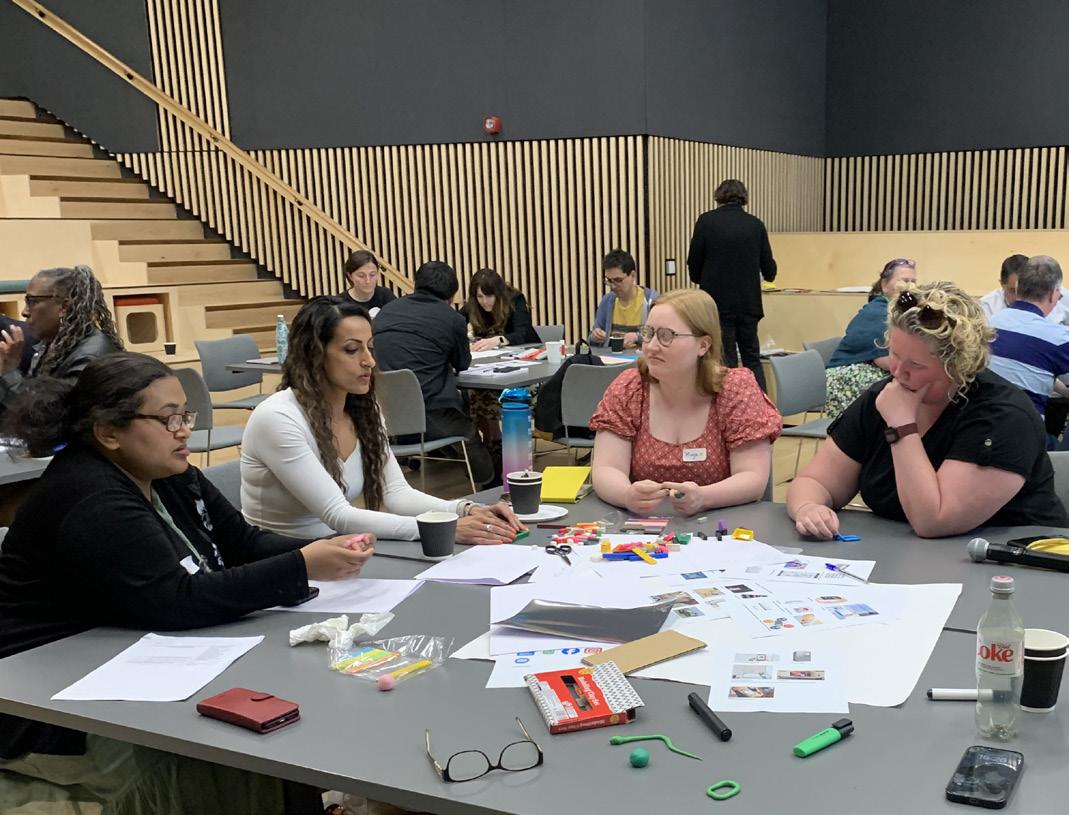
was important for bringing together different stakeholders and for, it is hoped, being more inclusive in our research practices.
As a co-applicant in a large EPSRC application led by Professor Rahman in Ashton University, Professor Cheung and Dr Sofia Vougioukalou secured a grant from the Learned Society for Wales for public involvement in bid development in the summer of 2023. They consulted with six disabled people, six refugees and asylum seekers and seven ethnic minority women who wear modest dress, and discussed the barriers they face regarding cycling.
As part of developing a bid for Health and Care Research Wales and the NIHR for Social programme of dementia and technologies, Dr Roser Beneito-Montagut and Dr Sofia Vougioukalou consulted with two people living with dementia and six carers about using technologies to engage people living with dementia in meaningful activity and ensure they are safe. Our public involvement advisors include people affected by dementia who identify as LGBT+, Afro-caribbean, Gypsy/ Traveller, Deaf and disabled.
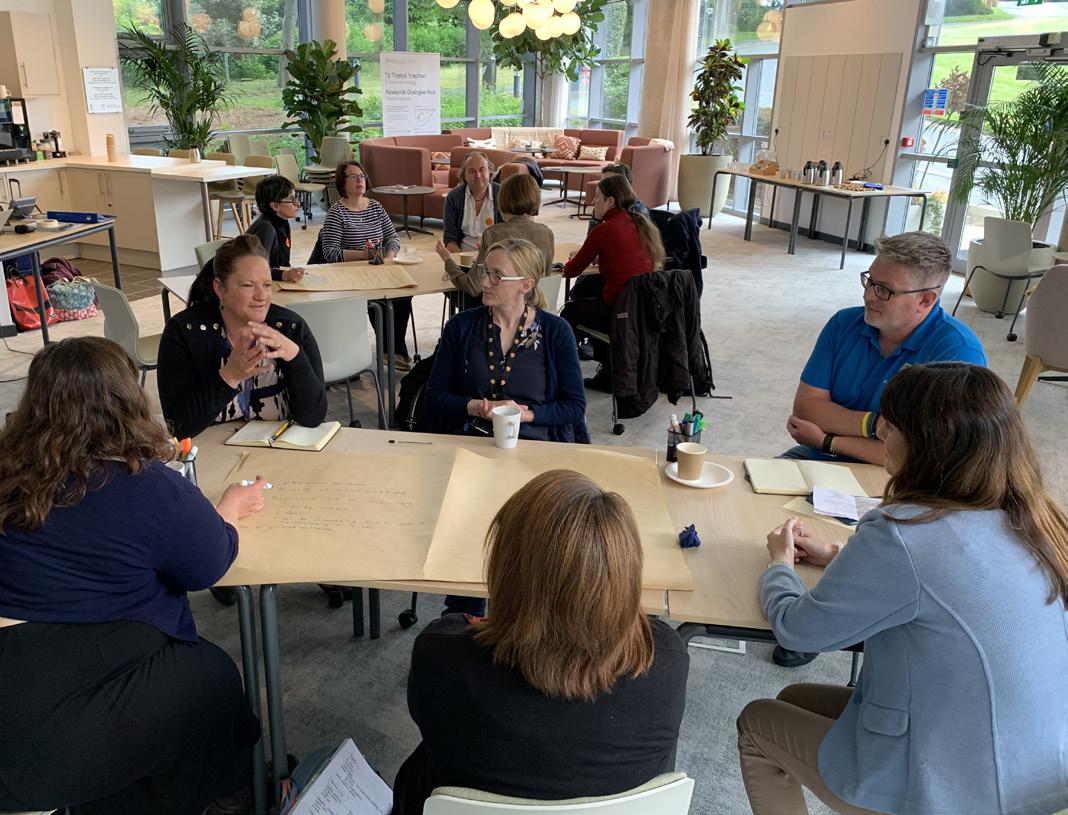
Public Involvement workshops run by Dr Roser Beneito-Montagut and Dr Sofia Vougioukalou at at sbarc|spark, Cardiff University and Aberystwyth.
Chloe Cannon
The reasons why I have chosen to become a member of the CARE Public Involvement Advisory Board is quite a varied answer as there are so many answers that I could give, but I have narrowed it down to three to give an idea of why and the reasons why I have joined the scheme.
One of the reasons is because a co-worker suggested this to me, and thought it would be a good idea for me to be a part of it due to my experiences personally and professionally.
Another big reason is because I am a young person with lived experiences of using all of the different departments of the adult social care as I have Learning Disabilities and use them on a regular basis for my disabilities.
The other big reason that I have joined is because of my job role which is Chair of the Learning Disabilities Steering Group of The Regional Partnership Board and is a good opportunity to get the people that I work for a good voice and to be able to talk about their experiences and thoughts on the adult social care. I also think it’s good for my role as I know what should be done in adult social care and what is a good and bad practice of the services that they provide.
Here are some things about me and how I am involved with adult social care:
I am a young person with lived experiences due to having Learning Disabilities and since I was little, I have always used social care from the children’s services right through to now using the adult Learning Disabilities Social Care Team Department, which for those under these services who have disabilities it’s all under the same roof and the same team which makes it easier to know that both medical professionals and also mental health teams are all working together instead of having to fight and find the different departments which makes it easier when trying to find which right professional that a person could be needing or trying to use.
Also, through my job role of being chair of the steering group for people with Learning disabilities, I work alongside social care services and other people or families of those with Learning Disabilities using who give out the support but with my role I am able to take the voices of people using these services find and how the social care can be altered or changed in a way that can make it easier to use these services which are there to help people instead of having trouble or these services not delivering what they should be.
Damian Peace
Joining the CARE Public Involvement Board is not just a professional duty for me; it’s a personal mission rooted in my own experiences with cerebral palsy. My journey with disability has imbued me with a deep understanding of the significant impact that thoughtful, inclusive social care policies can have on individuals’ lives. This perspective drives my commitment to ensuring that public involvement in health and social care transcends conventional approaches, focusing on creating environments that support every individual’s unique needs.
Living with cerebral palsy has not only shaped my understanding of disability but has also fueled my advocacy for more responsive and adaptable social care systems. My work, notably in helping to craft legislation like the Social Services and Well-being Act (2014), is deeply personal. These laws are more than policy to me; they are steps towards a more inclusive society where people with disabilities receive the support they need to thrive.
My advocacy for a social model of disability is born from personal necessity as much as professional understanding. This model promotes societal adjustments rather than individual adaptations, which is crucial for making social care accessible and effective for everyone, including those with disabilities like mine. Through my roles, I strive to ensure that social care practices are not only inclusive but are also coproduced with those who use them.
As a member of the board, I am particularly focused on ensuring that our policies and research reflect the real-world implications for individuals with disabilities. My goal is to leverage my personal experiences and professional insights to advocate for social care solutions that are genuinely inclusive and capable of meeting diverse needs. The co-production approach is vital, allowing us to craft services that users are directly involved in developing, thus enhancing their relevance and effectiveness.
I hope this report provides an indication of the early achievements made within our Centre in getting the right foundations down to grow from and to initiate new research activity in adult social care. Writing this Report gives much headspace for thinking about the priorities for the year ahead as well as looking back on the achievements made over the last year. As we head into Year 2 our priority areas include setting up practitioner involvement forums to expand our CARE community and to strengthen our partnership working with key organisations in the Welsh social care sector, and to establish international collaborations with key organisations and research groups overseas.
To this end we very much welcome hearing from organisations and groups that are interested in working with us, from Wales and beyond. Another key priority for the coming year is raising the profile and visibility of the Centre. Our website will be launched over the Summer months and we’ll be hosting an official launch event in the early Autumn. We’re also in the midst of planning a new programme of research seminars that will be focused on current and pressing issues in adult social care in partnership with our sister Centre EXCHANGE, co-located in Spark with us. In short, it promises to be a big year ahead and I look forward to reporting on this next time.
Professor Paul Willis
Director, Centre for Adult Social Care Research Professor of Adult Social Care
Cardiff University